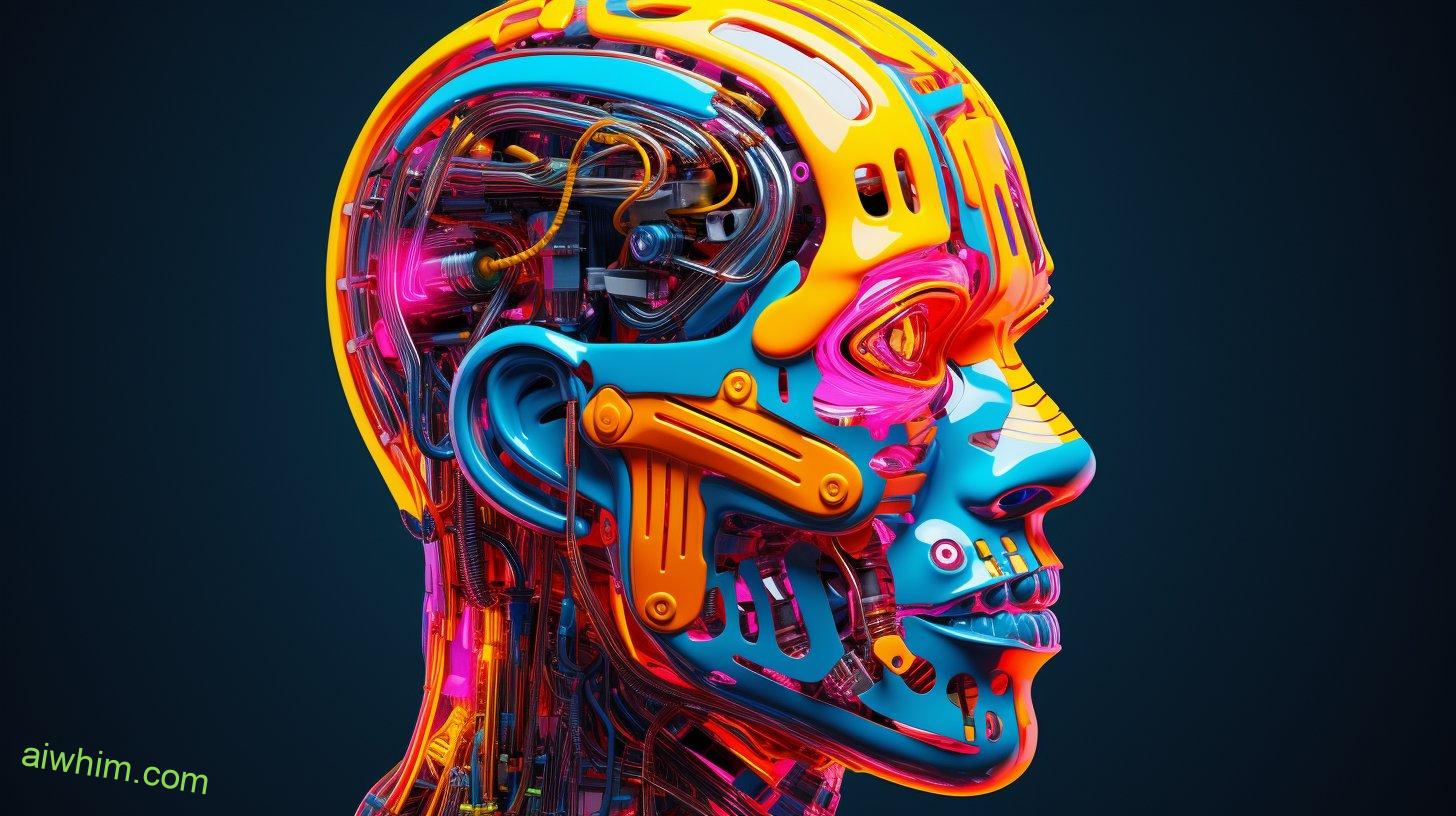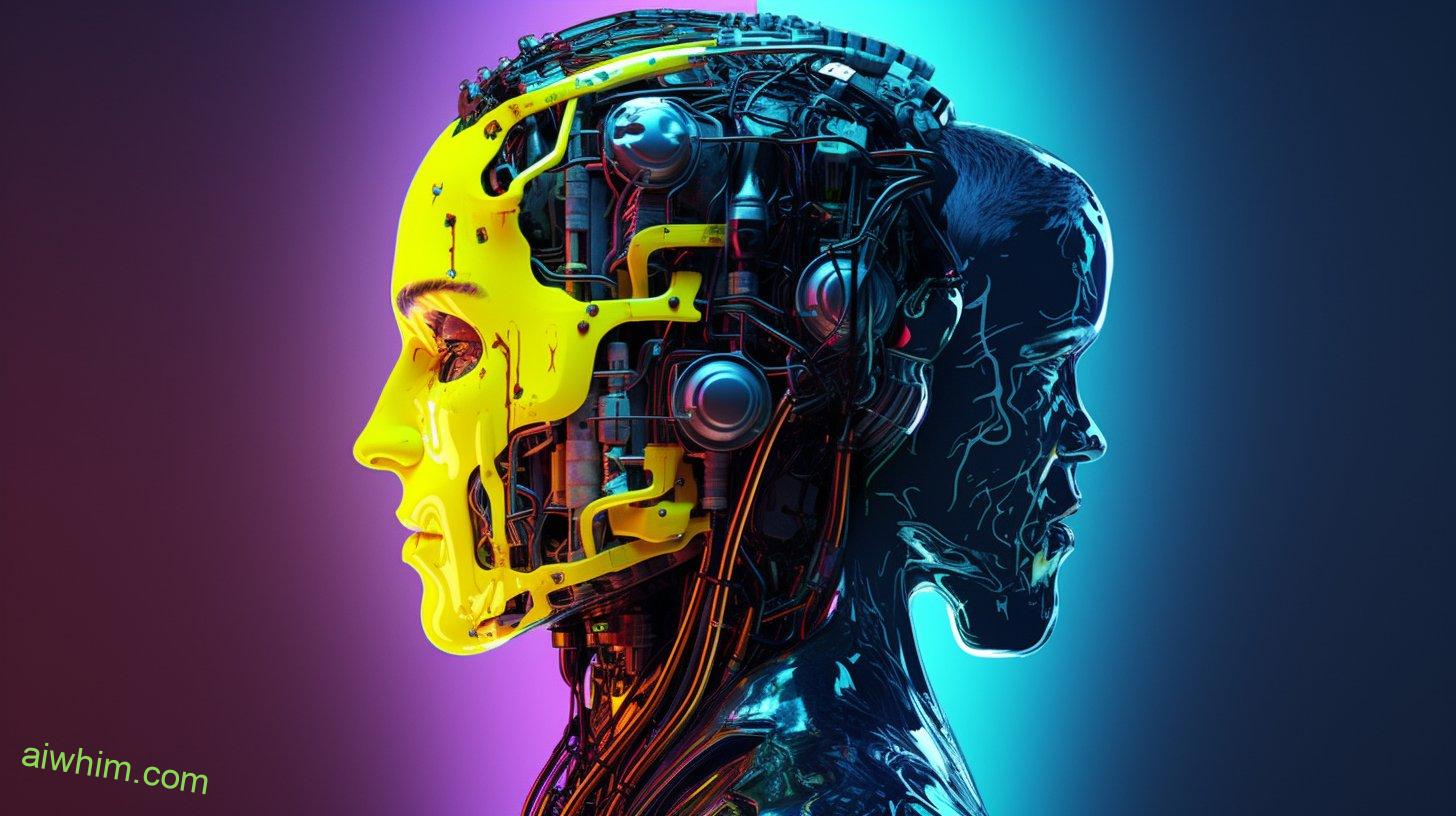Have you ever wondered if artificial intelligence (AI) will disrupt the job market and specifically affect compensation and benefits managers? Well, the truth is, AI is already making waves in various industries, and the field of compensation and benefits management is no exception.
With advancements in technology, AI has the potential to reshape job responsibilities and automate certain processes, but what does this mean for professionals in this field?
In this discussion, we will explore the impact of AI on compensation and benefits managers, the benefits it brings, and how it can be balanced with the human touch to ensure effective workforce management.
So, let’s dive into this intriguing topic and uncover the future landscape of AI in compensation management.
Key Takeaways
- AI streamlines compensation management processes, improving efficiency and reducing costs.
- AI automation allows HR professionals to focus on strategic initiatives and decision-making.
- AI enhances employee satisfaction and engagement through objective performance evaluations and personalized recommendations.
- Managers must address ethical considerations and algorithmic bias to ensure fairness and transparency in AI-driven decision making.

The Role of AI in Compensation Management
AI plays a crucial role in streamlining compensation management processes and improving overall efficiency. With the advancement of artificial intelligence (AI), companies now have the opportunity to revolutionize how they evaluate performance and benchmark salaries. Gone are the days of manual data analysis and time-consuming evaluations.
AI in performance evaluation allows for a more objective and accurate assessment of employee performance, eliminating biases that may arise from subjective evaluations. By analyzing various data points such as productivity, quality of work, and customer feedback, AI can provide a comprehensive and fair assessment of an employee’s contribution to the organization.
Moreover, AI in salary benchmarking simplifies the process of determining competitive compensation packages. Traditionally, HR professionals would spend hours researching market rates and analyzing industry trends to ensure their organization’s salaries were competitive. However, AI algorithms can now collect and analyze vast amounts of salary data from multiple sources, providing real-time insights into market rates. This not only saves time but also ensures that companies are offering competitive compensation packages to attract and retain top talent.
By leveraging AI in compensation management, companies can enhance their overall efficiency and effectiveness. The automation of performance evaluations and salary benchmarking allows HR professionals to focus on strategic initiatives and employee engagement, rather than being tied down by administrative tasks. Additionally, the objective nature of AI evaluations promotes a fair and transparent work environment, fostering trust and motivation among employees.
In a world that values freedom and efficiency, AI in compensation management offers a path to streamlining processes, promoting fairness, and ultimately improving overall organizational performance. Embracing AI technology allows companies to stay competitive in the ever-evolving job market while providing employees with a transparent and unbiased compensation system.

Benefits of AI in the Industry
One of the key advantages that artificial intelligence (AI) brings to the industry is its ability to automate repetitive and time-consuming tasks. This not only saves time and resources but also allows compensation and benefits managers to focus on more strategic and value-adding activities.
Here are three specific benefits of AI in the industry:
- AI’s role in cost reduction: By automating tasks such as data analysis, payroll administration, and benefits processing, AI can significantly reduce costs for organizations. AI algorithms can quickly analyze large volumes of data, identify patterns, and make predictions, allowing managers to make more informed decisions regarding compensation and benefits. This streamlining of processes not only saves money but also improves accuracy and efficiency.
- AI’s impact on employee satisfaction: AI-powered systems can provide employees with personalized recommendations and real-time access to compensation and benefits information. This empowers employees to make informed choices, increasing their satisfaction and engagement. For example, AI chatbots can answer employees’ questions about benefits packages, eligibility criteria, and retirement plans, providing instant support and reducing the need for manual intervention. This accessibility and transparency contribute to a positive employee experience.
- Enhanced compliance and risk management: AI can help compensation and benefits managers stay compliant with ever-changing regulations. By automating compliance checks and monitoring, AI systems can identify potential risks, such as discrepancies in compensation or benefits practices. This proactive approach helps organizations avoid legal issues and penalties, ensuring fair and equitable treatment of employees.

How AI Is Reshaping Job Responsibilities
With the integration of AI in the industry, compensation and benefits managers are experiencing a significant transformation in their job responsibilities. AI implementation challenges and AI’s impact on job satisfaction are two key aspects that are reshaping their roles.
AI implementation challenges can be daunting for compensation and benefits managers. The introduction of AI technologies requires them to adapt to new systems and processes. They must understand how to effectively utilize AI tools, such as machine learning algorithms, to analyze vast amounts of data and make informed decisions. This shift demands a certain level of technical proficiency, which may require additional training or upskilling.
Furthermore, AI’s impact on job satisfaction is a crucial consideration. While AI can automate routine tasks, it can also reduce the need for human intervention in certain areas. This may lead to concerns about job security and the fear of being replaced by machines. Compensation and benefits managers may feel uncertain about the future of their roles and the value they bring to their organizations.
However, it’s important to recognize that AI can also enhance job satisfaction for compensation and benefits managers. By automating repetitive tasks, AI enables them to focus on more strategic and value-added activities. They can dedicate their time and energy to analyzing complex data, identifying trends, and developing innovative compensation and benefits strategies. This shift allows them to contribute more meaningfully to their organizations and make a measurable impact on employee satisfaction and engagement.

Automating Compensation and Benefits Processes
To streamline compensation and benefits processes, organizations are increasingly implementing automation technologies. By automating HR processes and streamlining compensation administration, companies can save time and reduce errors. Here are three ways automation is transforming compensation and benefits processes:
- Automated payroll: With automation, calculating and processing payroll becomes a breeze. The system can accurately calculate salaries, deductions, and bonuses, ensuring that employees are compensated correctly and on time. This eliminates the need for manual data entry and reduces the risk of errors or discrepancies.
- Self-service portals: Automation allows employees to access and manage their compensation and benefits information through self-service portals. They can view their pay stubs, update their personal information, and make changes to their benefits elections all in one place. This empowers employees to take control of their own compensation and benefits, giving them the freedom to make changes whenever they need to.
- Streamlined benefits enrollment: Automation simplifies the benefits enrollment process for employees. They can review available options, compare plans, and make selections online. The system can also automatically update employee records and deductions, ensuring that the correct benefits are applied and reflected in payroll. This not only saves time for both employees and HR professionals but also reduces the likelihood of errors or miscommunications.

AI-Powered Analytics for Better Decision Making
Ai-powered analytics revolutionize decision making by providing organizations with actionable insights and data-driven recommendations. With the advent of AI technology in HR analytics, companies can now harness the power of AI to make more informed decisions about compensation and benefits.
AI powered decision-making tools enable organizations to analyze vast amounts of data quickly and accurately. These tools can process data from various sources, including employee surveys, performance evaluations, market trends, and financial data. By leveraging AI algorithms, companies can identify patterns, correlations, and trends that may have otherwise gone unnoticed.
Through AI-powered analytics, organizations can gain a deeper understanding of their workforce and make data-driven decisions regarding compensation and benefits. These tools can provide insights into employee satisfaction, engagement levels, and performance metrics. By analyzing this data, companies can identify areas for improvement and develop strategies to attract, retain, and motivate their employees effectively.
Furthermore, AI-powered analytics can help identify discrepancies in compensation and benefits. By analyzing data on employee demographics, job roles, and performance, organizations can ensure that their compensation and benefits packages are fair and equitable.

Challenges Faced by Compensation Managers With AI Integration
As compensation managers integrate AI-powered analytics into their decision-making processes, they’re confronted with a new set of challenges. The integration of AI brings about numerous benefits, but it also presents some hurdles that need to be overcome. Here are three challenges faced by compensation managers with AI integration:
- Data Quality and Reliability: AI relies heavily on data to generate accurate insights and recommendations. However, ensuring the quality and reliability of data can be a significant challenge. Compensation managers need to carefully evaluate the sources and validity of data used by AI algorithms to avoid biased or inaccurate results.
- Ethical Considerations: AI algorithms may inadvertently perpetuate biases and discrimination if not carefully monitored and regulated. Compensation managers need to ensure that the AI systems they use are designed to be fair and unbiased. They must also be vigilant in addressing any potential ethical concerns that may arise from the use of AI in compensation decisions.
- Change Management: Integrating AI into existing compensation processes requires change management efforts. Employees may be resistant to the idea of AI making decisions that affect their compensation. Compensation managers need to effectively communicate the benefits of AI integration and provide training and support to employees to alleviate any fears or concerns they may have.
Successfully navigating these challenges will be crucial for compensation managers as they integrate AI into their decision-making processes. By proactively addressing these issues, compensation managers can harness the power of AI to improve compensation practices while ensuring fairness, accuracy, and transparency.

The Future of Compensation and Benefits Management
The future of compensation and benefits management holds exciting possibilities for organizations and their employees. With the rapid advancement of artificial intelligence (AI), the future of AI in compensation management looks promising. AI has the potential to revolutionize the way compensation and benefits are managed, making the process more efficient and accurate.
One of the key impacts of AI in compensation management is its effect on job satisfaction. By automating repetitive tasks and streamlining processes, AI allows compensation and benefits managers to focus on strategic and value-added activities. This shift in responsibilities can lead to higher job satisfaction as managers can now dedicate more time to employee engagement and development, rather than being bogged down by administrative tasks.
Furthermore, AI can help compensation managers make more data-driven decisions. By analyzing large volumes of data, AI algorithms can identify patterns and trends that may have been missed by human analysis alone. This can result in fairer and more objective compensation practices, promoting a sense of transparency and equity within the organization.
However, it’s important to note that the future of AI in compensation management isn’t without challenges. There are concerns regarding the potential bias in AI algorithms and the ethical implications of relying solely on machine-generated decisions. It will be crucial for organizations to ensure that AI is used as a tool to augment human decision-making, rather than replace it entirely.
As the future unfolds, the integration of AI in compensation and benefits management has the potential to revolutionize the field. By leveraging AI technology, organizations can enhance job satisfaction, promote fairness, and drive better outcomes for both employees and the organization as a whole.
Embracing this future of AI in compensation management will empower organizations to adapt and thrive in an ever-changing business landscape.

AI’s Impact on Job Security for Managers
Job security for managers may be impacted by the integration of AI in compensation and benefits management. As AI adoption continues to grow in the job market, it can bring both opportunities and challenges for managers. Here are three ways AI’s impact on job security for managers:
- Automation of routine tasks:
AI can automate repetitive tasks such as data entry, analysis, and report generation. While this can increase efficiency and accuracy, it may also reduce the need for managers to perform these tasks manually. As a result, managers may need to adapt and develop new skills to stay relevant in the evolving job market. - Shift in job responsibilities:
With AI taking over certain tasks, managers may find their roles evolving. They might be required to focus more on strategic decision-making, problem-solving, and relationship management. This shift can provide managers with new challenges and opportunities to add value to their organizations. - Need for upskilling:
As AI technology advances, managers may need to continuously upskill themselves to keep up with the changing demands of their roles. This could involve learning new tools and technologies related to AI, as well as developing skills in areas such as data analysis, machine learning, and human-AI collaboration.
While the integration of AI in compensation and benefits management may bring uncertainties, it also opens up new avenues for managers to contribute and excel. By embracing AI and proactively developing new skills, managers can secure their job positions and thrive in the changing landscape of the job market. Remember, freedom comes from adaptability and continuous growth.

Training and Upskilling in the Age of AI
With the integration of AI in compensation and benefits management shaping the job market, it’s essential for you to prioritize training and upskilling in the age of AI. As AI continues to advance and take on more complex tasks, it’s crucial for you to keep up with the changing landscape and develop the necessary skills to stay relevant and competitive.
AI training programs are becoming increasingly important in helping managers like you adapt to the changing demands of the job market. These programs provide you with the knowledge and skills needed to effectively leverage AI technologies and tools in your role. By participating in these programs, you can gain a deeper understanding of AI concepts and learn how to apply them in your compensation and benefits management practices. This won’t only enhance your efficiency and effectiveness but also enable you to provide valuable insights and strategic recommendations to your organization.
Furthermore, AI-driven skill development is another crucial aspect to consider. As AI takes over routine tasks, it becomes imperative for you to focus on developing skills that can’t be easily automated. These skills include critical thinking, problem-solving, creativity, and emotional intelligence. By honing these skills, you can position yourself as a valuable asset in the age of AI, as these are the skills that AI can’t replicate.

Ethical Considerations in AI-Driven Decision Making
To make ethical decisions in an AI-driven environment, it’s crucial for compensation and benefits managers to consider the potential consequences of AI algorithms and ensure fairness and transparency in their decision-making processes. As AI becomes increasingly integrated into the workplace, it’s important to address the ethical implications and algorithmic bias that may arise.
Here are three key considerations for compensation and benefits managers to keep in mind:
- Fairness and Discrimination: AI algorithms have the potential to perpetuate biases and discriminate against certain groups. It’s essential for managers to actively mitigate algorithmic bias by regularly auditing and testing AI systems for fairness. Taking steps to ensure that AI-driven decisions don’t discriminate based on factors such as gender, race, or age is crucial for maintaining an inclusive and equitable work environment.
- Transparency and Explainability: AI algorithms can often be complex and difficult to understand. It’s important for compensation and benefits managers to demand transparency from AI vendors and developers, ensuring that the decision-making processes are explainable and understandable. Employees should have the right to know how their compensation and benefits are determined and be able to seek clarification or challenge decisions made by AI systems.
- Human Oversight and Accountability: While AI can provide valuable insights and recommendations, it shouldn’t replace human judgment entirely. Compensation and benefits managers should maintain an active role in decision-making processes, exercising human oversight and ensuring that AI-driven decisions align with organizational values and goals. Ultimately, the responsibility for any decisions made by AI algorithms should rest with the human decision-makers.

Leveraging AI for Improved Employee Engagement
As compensation and benefits managers navigate the ethical considerations of AI-driven decision making, you can also leverage AI to enhance employee engagement. With the advancement of AI technology, there are numerous opportunities to improve employee satisfaction and create a more positive work environment.
One way AI can contribute to improved employee engagement is by personalizing the work experience. AI-powered systems can analyze vast amounts of data on individual employees, such as their work preferences, strengths, and weaknesses. This information can then be used to tailor job assignments, training programs, and career development opportunities to each employee’s unique needs and aspirations. By providing employees with personalized experiences, you can foster a greater sense of belonging and fulfillment, ultimately leading to increased engagement and productivity.
Additionally, AI can help address some of the challenges associated with employee satisfaction. For instance, AI-driven chatbots can provide immediate assistance and support to employees, addressing their concerns and answering their questions promptly. This can help alleviate frustrations and improve overall satisfaction with the HR processes.
However, it’s important to acknowledge the potential AI implementation challenges that can arise. AI systems are only as good as the data they’re trained on, and biases embedded in the data can lead to unfair treatment or discrimination. It’s crucial to ensure that AI algorithms are regularly audited and monitored to prevent such issues.
Moreover, transparency and clear communication about the role of AI in decision-making processes can help build trust and minimize employee concerns.

Balancing AI and Human Touch in Compensation Management
Finding the right balance between AI technology and human interaction is crucial in compensation management. While AI can streamline processes and provide data-driven insights, it’s important to maintain a human touch to ensure employee satisfaction and address AI implementation challenges.
Here are three ways to achieve this balance:
- Regular communication:
Maintain open lines of communication with employees to understand their needs and concerns. While AI can analyze data to determine compensation levels, it’s essential to have human conversations to understand individual circumstances and preferences. Regular check-ins with employees can help build trust and ensure that their compensation is aligned with their expectations. - Personalized approach:
While AI algorithms can analyze vast amounts of data to determine compensation, they may not take into account the unique circumstances of each employee. By incorporating a human touch, compensation managers can consider factors such as performance, skills, and contributions that may not be captured by AI systems. This personalized approach can boost employee satisfaction and foster a sense of fairness in compensation management. - Transparency and feedback:
AI algorithms can sometimes be seen as black boxes, making it difficult for employees to understand how compensation decisions are made. By providing transparency in the compensation process and seeking feedback from employees, compensation managers can address any concerns or misconceptions. This human touch can help employees feel valued and included in the decision-making process.

Ai’s Role in Predicting and Managing Workforce Trends
Maintaining a balance between AI technology and human interaction is crucial in compensation management. Organizations now have access to powerful tools that can analyze vast amounts of data and provide valuable insights into workforce trends, thanks to the advancement of AI. Predictive analytics is one such tool that AI utilizes to forecast future trends based on historical data and patterns.
By leveraging predictive analytics, AI can help businesses optimize their workforce by identifying potential challenges and opportunities. For example, AI can analyze data on employee performance, engagement, and turnover rates to predict which employees are most likely to leave the company. Armed with this information, organizations can take proactive measures to retain valuable talent and improve employee satisfaction.
Furthermore, AI can also help companies identify skill gaps within their workforce. By analyzing data on employee skills, training, and job performance, AI can provide valuable insights into areas where additional training or recruitment may be required. This enables organizations to optimize their workforce by ensuring that they have the right talent in the right positions.
Workforce optimization is another area where AI can make a significant impact. AI can analyze data on employee productivity, work patterns, and collaboration to identify areas where efficiency can be improved. By providing actionable insights, AI can help organizations streamline their processes, allocate resources effectively, and improve overall productivity.

Addressing Employee Concerns and Fears About AI
To alleviate employee concerns and fears about AI, organizations must provide clear communication and education about the technology’s benefits and limitations. Here are three key steps organizations can take to address these concerns and build employee trust:
- Transparent communication: Organizations should openly communicate about the AI implementation challenges they face and how they plan to address them. By sharing this information, employees can gain a better understanding of the organization’s AI strategy and the potential impact on their roles. Transparent communication helps foster trust and reduces uncertainty.
- Education and training: Providing comprehensive education and training programs on AI can help employees understand the technology better. This includes explaining how AI works, its limitations, and how it can complement their skills and enhance their productivity. By empowering employees with knowledge, organizations can dispel any misconceptions and alleviate fears.
- Inclusion and collaboration: Involve employees in the AI implementation process and encourage their participation. Seek their input and feedback on how AI can be integrated into their work processes to improve efficiency and effectiveness. By involving employees in decision-making and giving them a voice, organizations can address concerns and build a sense of ownership and partnership.

Case Studies of Successful AI Integration in Compensation Management
To further explore the successful integration of AI in compensation management, let’s examine real-life case studies that highlight its impact and effectiveness. These successful case studies demonstrate how AI technology has revolutionized the way organizations manage compensation and benefits for their employees.
One notable case study is that of Company X, a large multinational corporation operating in the technology sector. Prior to implementing AI in their compensation management process, the company faced numerous challenges such as manual data entry, human errors, and time-consuming calculations. By leveraging AI algorithms and machine learning, Company X was able to automate their compensation management system, resulting in increased accuracy and efficiency. The AI system was able to analyze large volumes of data and provide instant insights, enabling HR managers to make data-driven decisions regarding employee compensation.
Another case study involves Company Y, a medium-sized manufacturing company. Before integrating AI, the company struggled with identifying market trends and benchmarking compensation packages. By utilizing AI-powered analytics tools, Company Y was able to gather comprehensive market data, analyze industry trends, and determine competitive compensation levels. This allowed the company to attract and retain top talent, resulting in improved employee satisfaction and reduced turnover rates.
Despite the success stories, it’s important to acknowledge that implementing AI in compensation management does come with its own set of challenges. Integration challenges include the need for continuous training and upskilling of HR personnel to effectively use AI tools, ensuring data privacy and security, and addressing concerns about bias in AI algorithms. However, with proper planning and support, these challenges can be overcome, paving the way for effective AI integration in compensation management.

Frequently Asked Questions
What Are Some Potential Ethical Considerations That Arise When Using AI-Driven Decision Making in Compensation Management?
When using AI-driven decision making in compensation management, it’s important to consider potential ethical issues. AI ethics and fairness considerations must be taken into account to ensure a just and unbiased process.
How Can Compensation Managers Address Employee Concerns and Fears About the Integration of AI in Their Roles?
Addressing concerns about AI integration in compensation management is crucial. Show empathy, explain the benefits AI brings, and emphasize that it complements rather than replaces human skills. Foster open communication and involve employees in decision-making to ensure freedom and trust.
Can You Provide Any Case Studies of Successful AI Integration in Compensation Management?
You can find case studies showcasing successful AI integration in compensation management. These studies highlight the positive outcomes of using AI for tasks like data analysis, decision-making, and streamlining processes. Ethical considerations are also addressed to ensure fairness and transparency.
What Is the Role of AI in Predicting and Managing Workforce Trends?
AI plays a crucial role in predicting and managing workforce trends. It helps you make informed decisions by analyzing data, identifying patterns, and forecasting future needs. Embrace AI to stay ahead and effectively manage your workforce.
How Can Compensation Managers Effectively Balance the Use of AI With Maintaining a Human Touch in Their Management Practices?
You can effectively balance the use of AI with maintaining a human touch in your management practices by prioritizing employee engagement. By incorporating AI tools that enhance communication and collaboration, you can create a harmonious blend of technology and personal connection.

Conclusion
In a world where AI is reshaping job responsibilities, compensation and benefits managers must embrace the benefits of automation and analytics. By incorporating AI-powered tools, managers can streamline processes, make better decisions, and predict workforce trends.
However, it’s crucial to strike a balance between AI and the human touch to address employee concerns and fears. Through successful case studies, it’s evident that AI integration in compensation management can lead to efficient and effective outcomes.
So, embrace the power of AI and navigate the future of compensation management with confidence.







